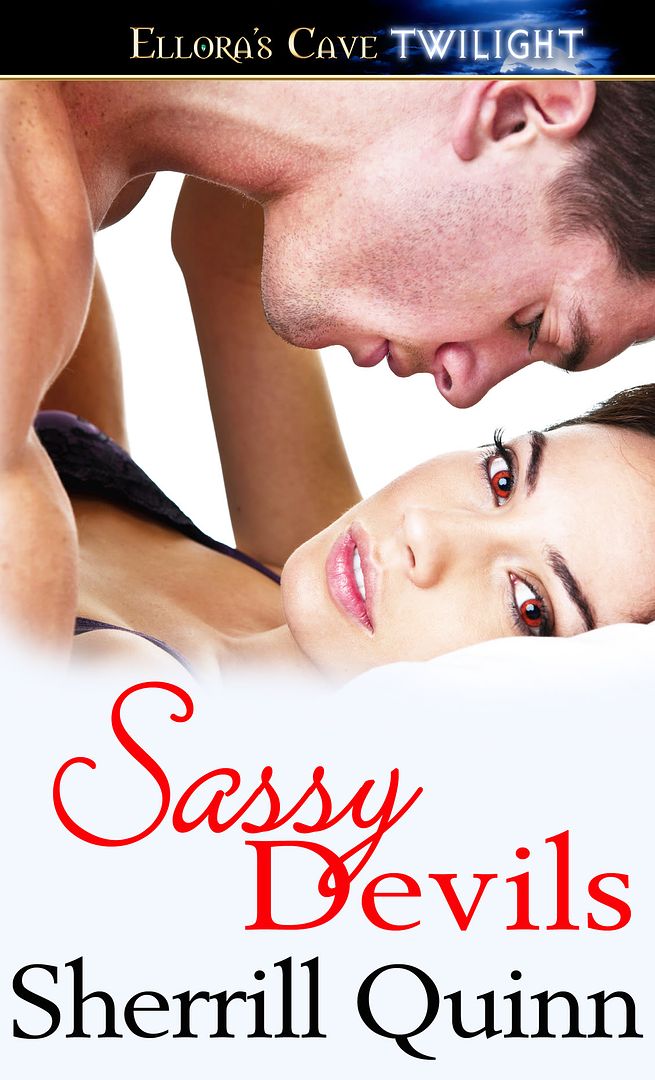Show--or Tell?
Many of my critique buds often comment, "Too much showing, not enough telling." I get caught up in trying to explain the motivation or conflict that I'm narrating... telling the story instead of showing it. It's something I have to be conscious of as I'm writing -- and I think I'm getting better.
Let's face it. The gentle stroke of the hero's fingers down the heroine's cheek speaks more about his ability to be tender than him trying to directly explain his feelings for her. Or him braving the big, scary monster that he's pretty sure is gonna eat him, but he has no choice because the monster is threatening his woman. The flash of fire in the heroine's eyes show more of her temperament than a few paragraphs of direct speech.
Human beings are capable of carrying on a conversation by saying one thing with their mouths, and something entirely different with their body language. As a writer, I try to pay more attention to how someone is saying something than what they're actually saying. When someone can't look me in the eye when she's talking to me, I'm a little concerned. I get a little irritated when someone looks down his nose at me, and really irritated when he rolls his eyes at me.
Of course, some things are better left unsaid, especially in a successful relationship. "Do these pants make me look fat?" should be met with a resounding "No." (It's your butt that makes you look fat. Think it. Don't say it. Not unless you want to die.) Complete honesty is not always the best policy. (Remember the Twix commercial? If you can't answer the question without hurting the other person's feelings, stuff a candy bar in your mouth.) LOL
In fiction, you can "show" a lot of what I'm talking about. When someone asks the hero if he loves the heroine and it's not something he's ready to talk about... well, you fill in the blanks. How would he react? What expression would show on his face? What about his body language?
Show me.
P.S. Jenna's blogging over at SEx today. Go on over and say hi.










5 comments:
Telling is not all conversation. The "gentle stroke of the hero's finger" is very much telling if you're in the heroine's POV. You're right, it is more important than him running on and breaking the mood you've created.
For me telling, is telling the reader what happened instead of showing them. I had this problem as well, showing is getting to the emotions and while the "gentle stroke of the hero's finger" maybe telling its the heroine's emotional reaction to that stroke of the hero's finger that is showing.
As for how does a hero react when asked if he loves the heroine and he's not ready to admit it. My hero generally gets a wide eyed paniced express for about a second, before closing down and changing the subject.
To me "a gentle stroke of the hero's finger" is telling me what he's doing but if we're in the hero's pov and there's all these emotions rolling around inside him that he can't get out except by touching her - then you're showing me how he feels despite the fact that nothing's come out of the mouth.
It's weird because all my hero's never deny what's inside of them even if they don't verbalize it. When it comes out - they only need to say it once and the heroine better be listening because, dang, who'd want to miss that the first time? Sigh. I'm so in love with my heroes.
Is there a magic potion to make them real?
In how many different ways can a man (or a fictional hero) show his woman that he loves her, without speaking the words?
How important is it, though, that he back his actions with those three little words?
Lots of ways, don't you think? It can be as mundane as drying the dinner dishes or reaching for her hand in public. Eventually he has to say he loves her. It's my experience women never believe it until they hear the words.
Post a Comment